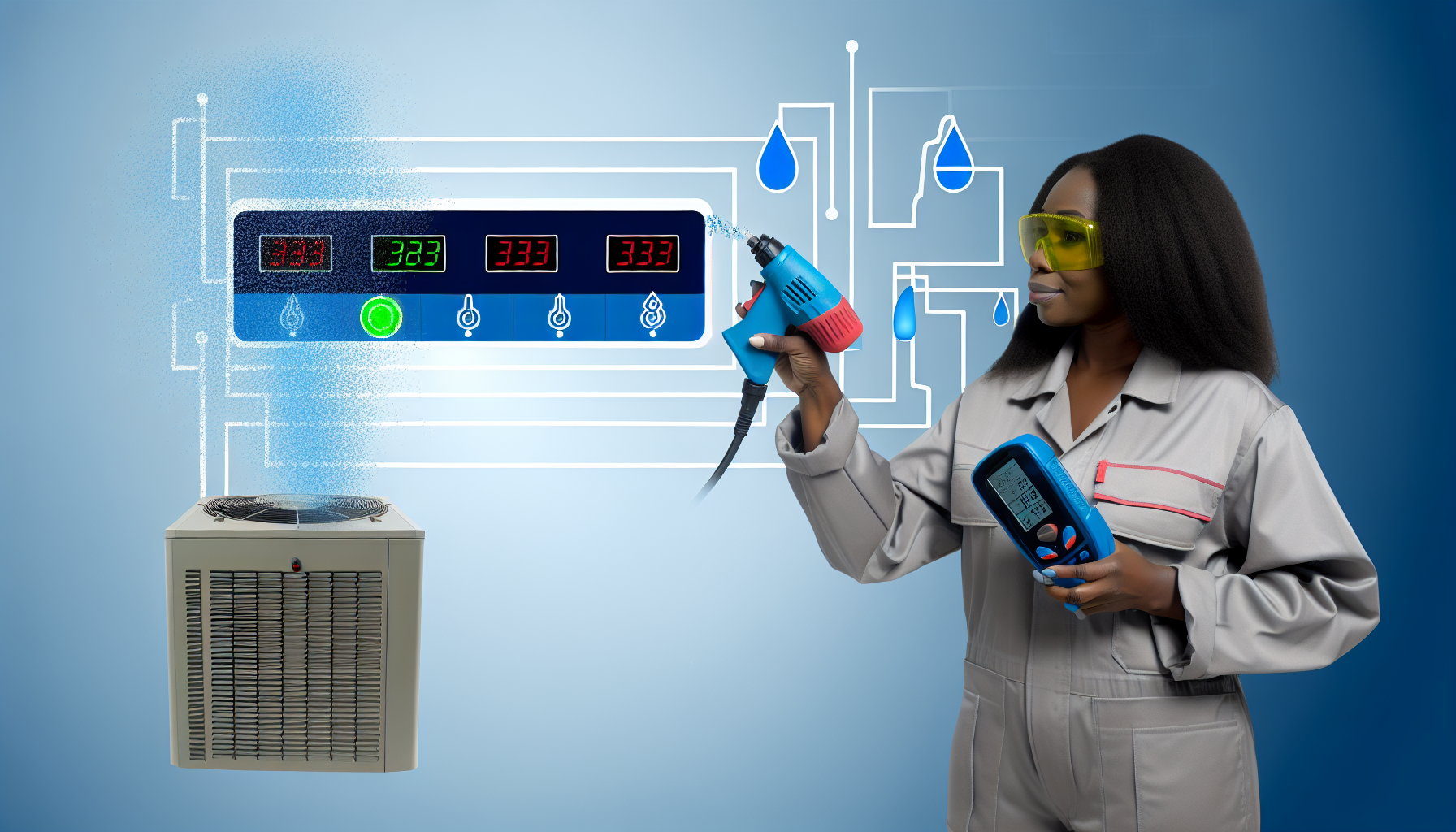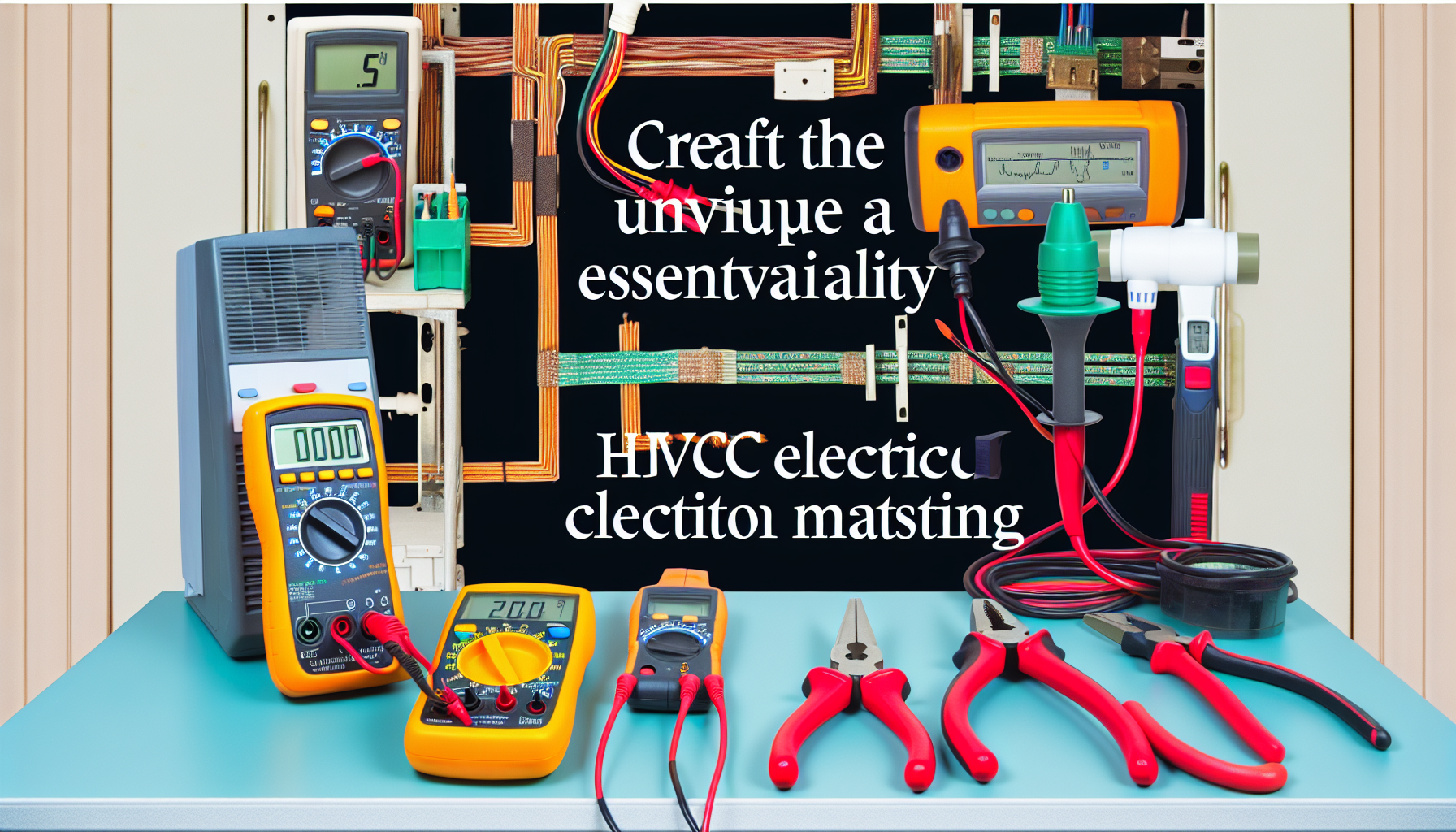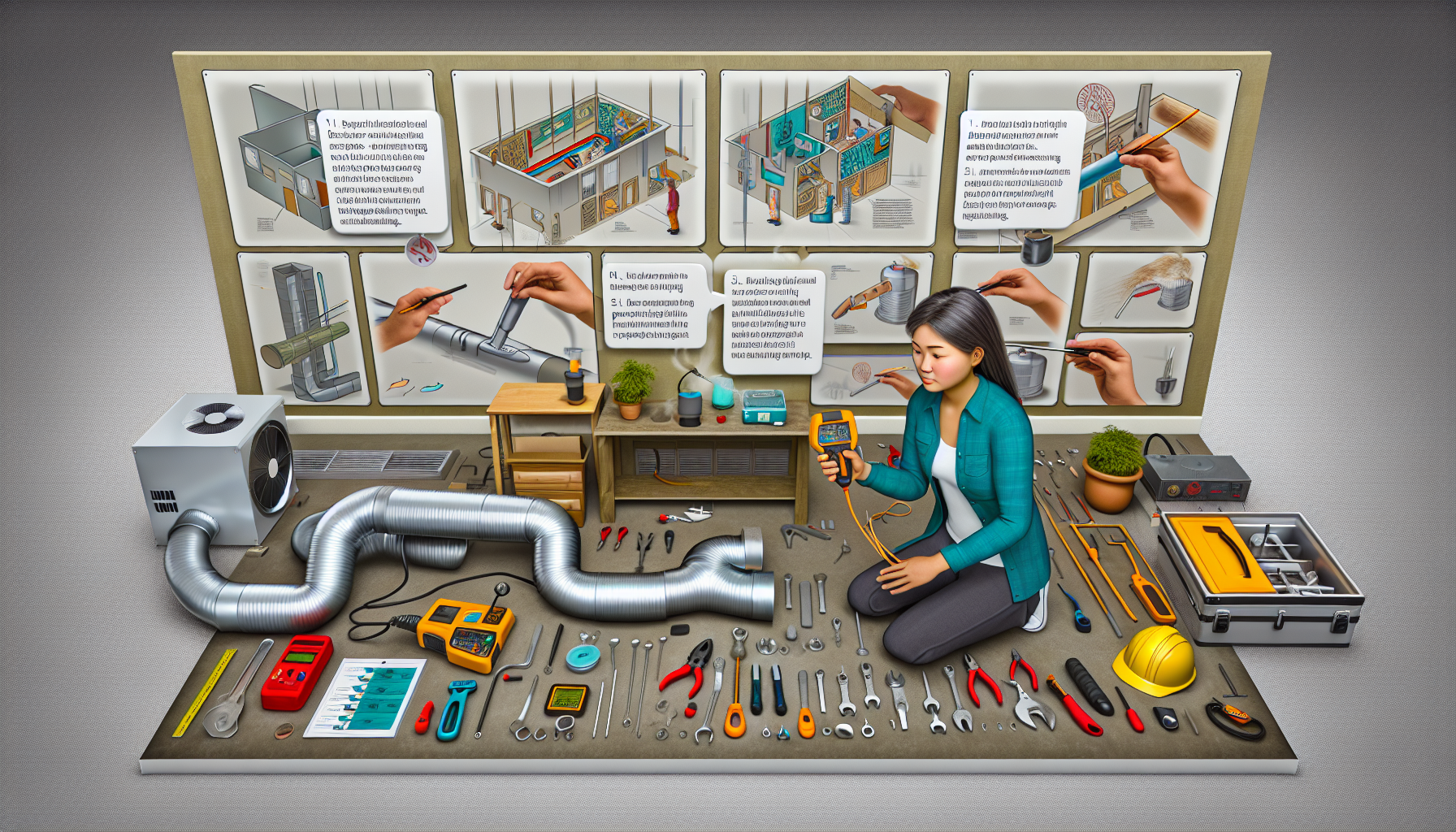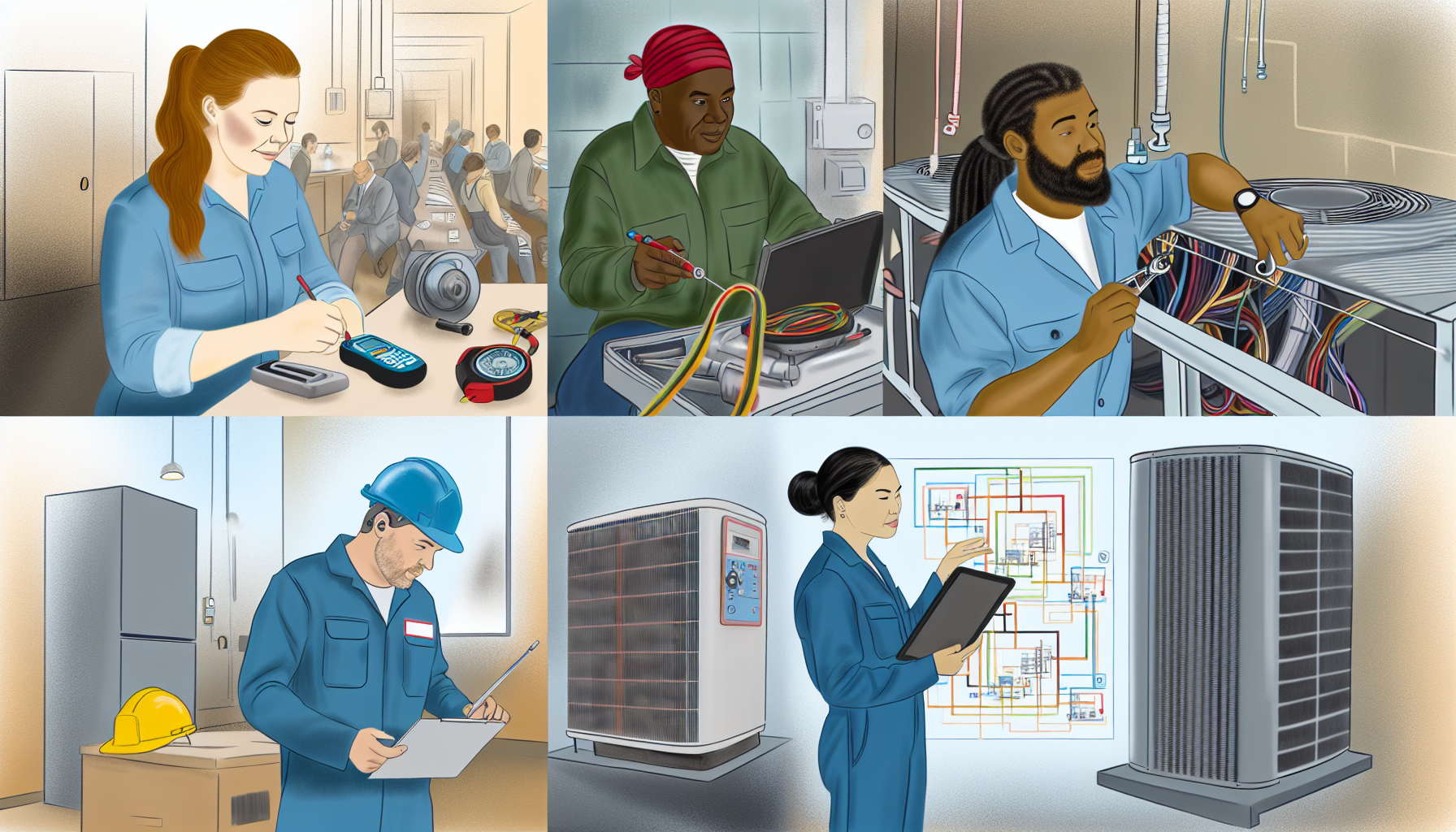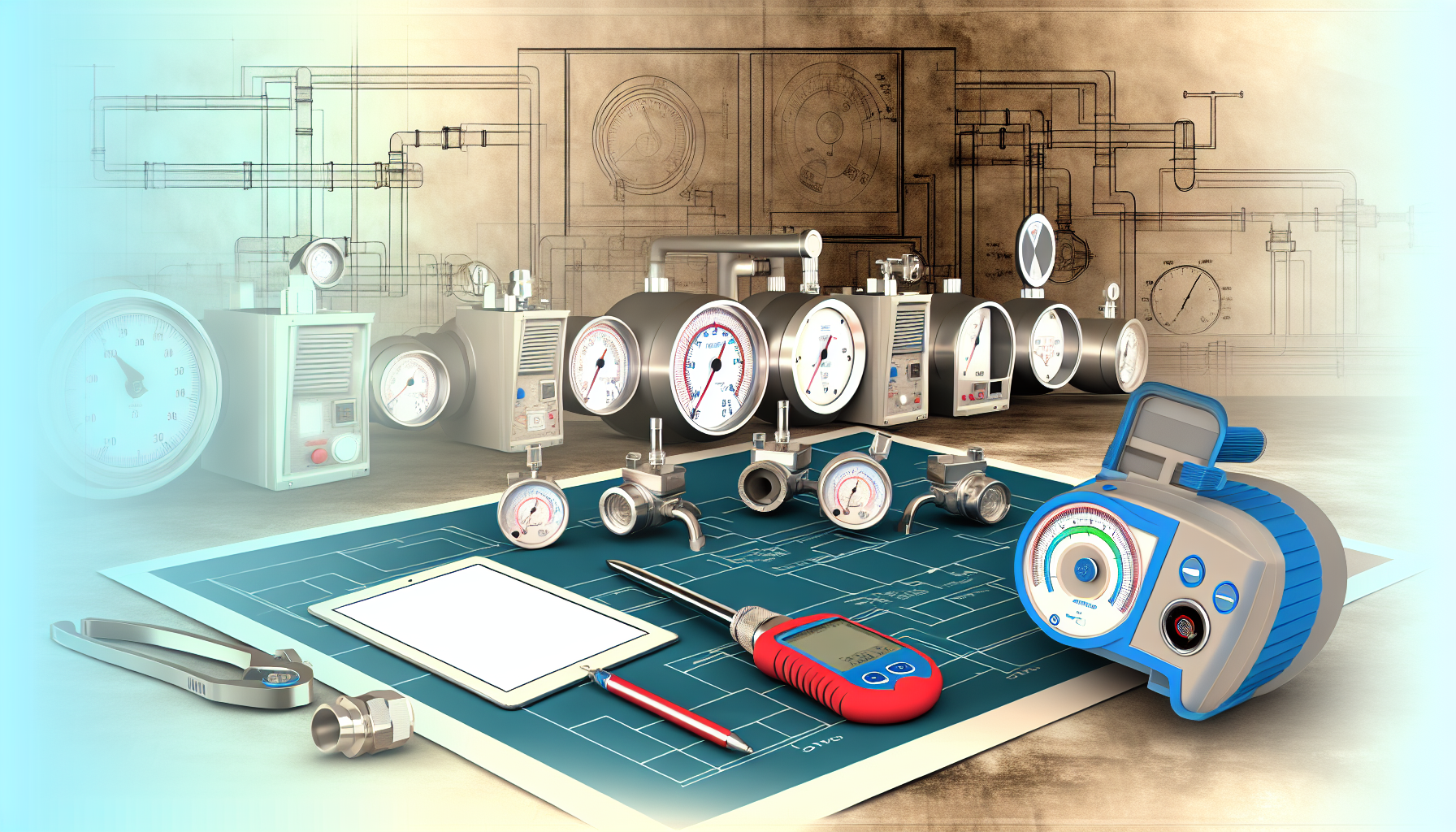Understanding HVAC Measurement and Testing Instruments
As a professional HVAC technician, having the right toolbox is essential to diagnose, repair, and maintain heating, ventilation, and air conditioning systems efficiently and safely. The precision of your work is only as good as the tools at your disposal. In this post, we’ll explore the top 10 measurement and testing instruments that every HVAC professional should consider for their toolkit.
The Professional’s Top 10 Toolkit for HVAC Measurement and Testing
Investing in high-quality, reliable tools can mean the difference between a job well done and a costly mistake. Here’s a list of the must-have instruments for any HVAC specialist.
- Multimeter
This versatile tool can measure voltage, current, and resistance, which are fundamental in troubleshooting electrical problems in HVAC systems. A true RMS multimeter is highly recommended for the most accurate readings, especially on systems with variable frequency drives (VFDs).
- Clamp Meter
For measuring the current flowing through a conductor without needing to make direct contact, a clamp meter is indispensable. It’s a key safety tool for HVAC workers as it enables the measurement of high amperage without disconnecting the circuit.
- Anemometer
Airflow is a critical component of HVAC performance. An anemometer can measure air velocity and often temperature, helping you ensure that air distribution systems are functioning properly.
- Manifold Gauge Set
Critical for working with refrigeration systems, a good manifold gauge set allows you to measure the high and low pressures within the system. Digital manifold gauges offer more precise readings and can monitor several measurements simultaneously.
- Thermometer
Accurate temperature readings are the cornerstone of HVAC work, making a reliable thermometer (preferably an infrared one for non-contact measures) a must-have in your toolkit.
- Psychrometer
To measure relative humidity and calculate dew point, you’ll need a high-quality psychrometer. These measurements can be vital when balancing systems and addressing comfort issues.
- Leak Detector
Leak detection is a common task in HVAC maintenance, and having a sensitive and reliable leak detector is critical, whether you’re working with refrigerants or looking for gas leaks.
- Refrigerant Scale
To ensure correct refrigerant charge, a refrigerant scale provides precise weight measurements. This ensures systems operate at maximum efficiency and can prevent damage to the compressor.
- Combustion Analyzer
For technicians working with fuel-burning appliances, a combustion analyzer is essential to measure efficiency, and emissions, and to ensure safe operation. Opt for one that can perform a full range of analyses including carbon monoxide (CO) readings.
- Ultrasonic Leak Detector
Ultrasonic leak detectors can identify leaks by sensing the high-frequency noise they create. They are surprisingly useful for pinpointing leaks in areas that are visually inaccessible or in noisy environments where traditional methods fail.
Supplementary Tools for HVAC Professionals
- Capacitor Tester: For diagnosing problems with capacitors in motors and compressors.
- Tubing Cutter: Clean, precise cuts on tubing are necessary for leak-free connections.
- Torque Wrench: Proper torque on fasteners is crucial to prevent leaks in refrigeration systems.
- Inspection Mirror: For visual inspections in tight spaces where you can’t easily see.
- Extension Cord: For powering tools and equipment when outlets are not within reach.
Frequently Asked Questions
- What is the most important tool for an HVAC technician?
It’s difficult to name the single most important tool because HVAC systems require a range of diagnostic and repair processes. However, a multimeter is often considered essential due to its versatility in measuring voltage, current, and resistance.
- Are digital tools always better than analog ones for HVAC?
Digital tools, like digital manifold gauges or thermometers, often provide more accuracy and can have additional features like data logging or Bluetooth connectivity. However, analog tools can still be reliable, and some technicians prefer their simplicity and durability.
- How often should HVAC tools be calibrated or replaced?
Calibration frequency depends on the manufacturer’s recommendations and the frequency of use. Some tools might require annual calibration, while others might need it less often. Tools should be replaced if they become unreliable, are not performing accurately, or are damaged.
- Can HVAC work be done without these specialized tools?
While some basic HVAC maintenance tasks can be done with a general toolkit, for most diagnostic, repair, and installation work, specialized HVAC tools are necessary for safety, accuracy, and efficiency.
- Is it more cost-effective for an HVAC technician to rent or own these tools?
This depends on the frequency of use and the cost of the tools. If a tool is used regularly, it’s generally more cost-effective to own it. However, for expensive tools that are rarely used or for one-off jobs, renting might be more economical.


